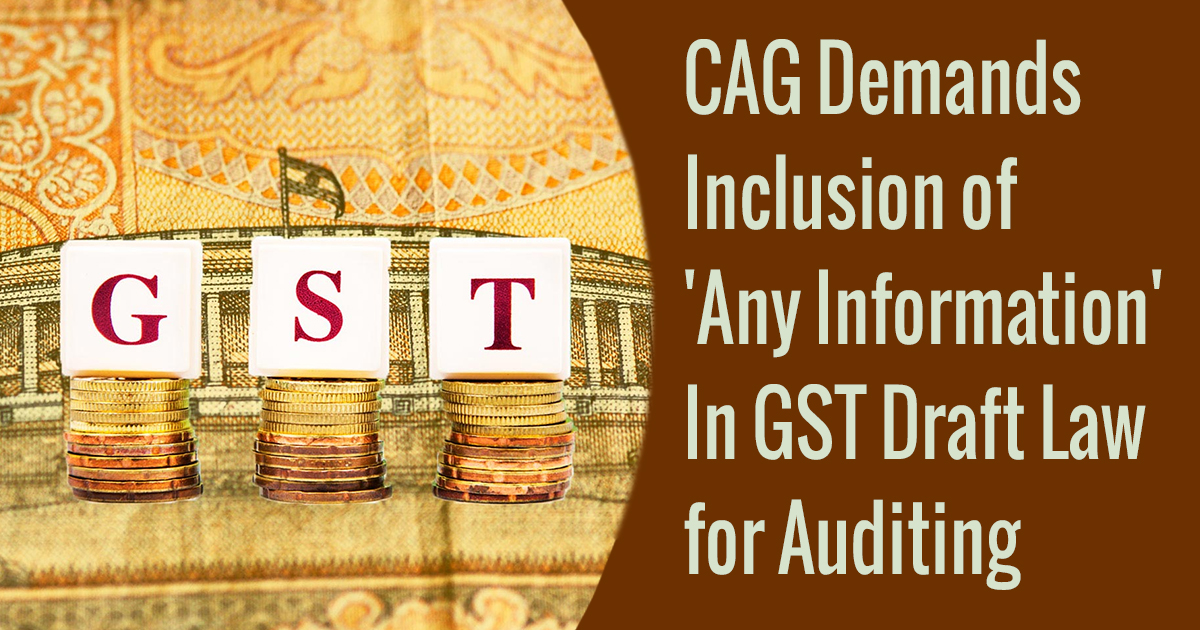Comptroller and Auditor General of India (CAG) has started its practice towards raising powers in their respective fields. While the department has always enjoyed the auditing of likewise all the information of taxation base of revenue generated in the consolidated funds of India, this time the eyes are raised for the inclusion of this power into the upcoming GST draft law to continue their prowess.
The finance department which is currently focusing on some significant issues like new tax regime and also an upcoming budget session of 2017, has to take down some important steps into the consideration. The finance minister Arun Jaitley has been known for his wit into the field and has been hoped to make some relaxation for the middle class.
Read Also: Road Gets Clearer for GST: Implementation Targeted on July 1
CAG Shashi Kant Sharma recently had a meeting with the GST council head and asked some major changes in the law and also wanted to include the word ‘any information’ into the draft law which would further give them the freedom to audit any piece of information which is known to have a impact on the taxation economy and revenue base of the country.
While there is a provision for the CAG which says that there will be liberation for the department to assess and audit the taxation including into the GST but the time period set was for the first five years which will likewise ascertain the compensation for the states in the case of revenue loss. In another scenario there is a CAG’s DPC (Duties, Powers and Conditions of Service) Act which says that, “it shall be the duty of the CAG to audit all receipts payable into the consolidated fund and to satisfy himself that the rules and procedures in relation receipts into the consolidates fund of India are designed to secure an effective check on the assessment, collection and proper allocation of revenue and are being duly observed.”
There is some section in the audition and taxation reforms which are considered important. In the terms, Section 16 says that the auditor to conduct audits of the receipts of governments, giving it no discretion in the matter. While coming to another section 18 it says that “any accounts, books, papers and other documents which deal with or form the basis of or otherwise relevant to the transactions to which his duties in respect of audit extend, shall be sent to such place as he may appoint for his inspection.”
Recommended: GST Network: Role of GST Suvidha Provider in India
There is then another section which is called section 65 which is being configured and mandating, “The proper officer shall, upon request made in this behalf, make available to the CAG or an officer authorised by him, information, records, and returns furnished under the Act and such other information as required for conduct of audit as required under the CAG’s DPC Act.”
Overall the demand certainly makes some benefit to the upcoming GST regime and all the heavy base of tax assessed should be audited along with the states and center to inspect any suspicious or misguiding turn. The finance minister Arun Jaitley is very much confident and all the department relies on him for it’s easy and firm decision which ultimately proves to be positive one, and this time again the expectation for the CAG reformation is taken quite seriously and affirmative.









